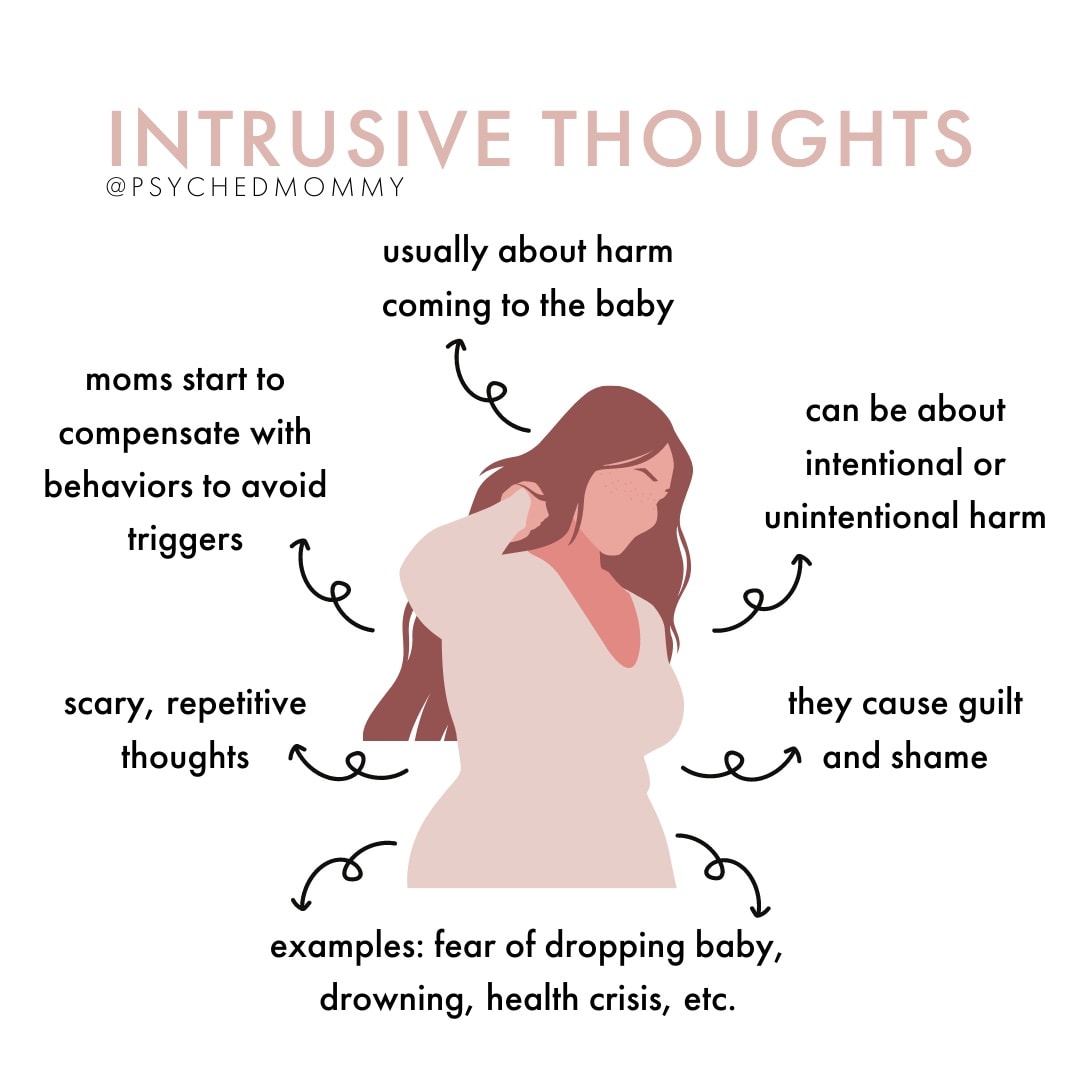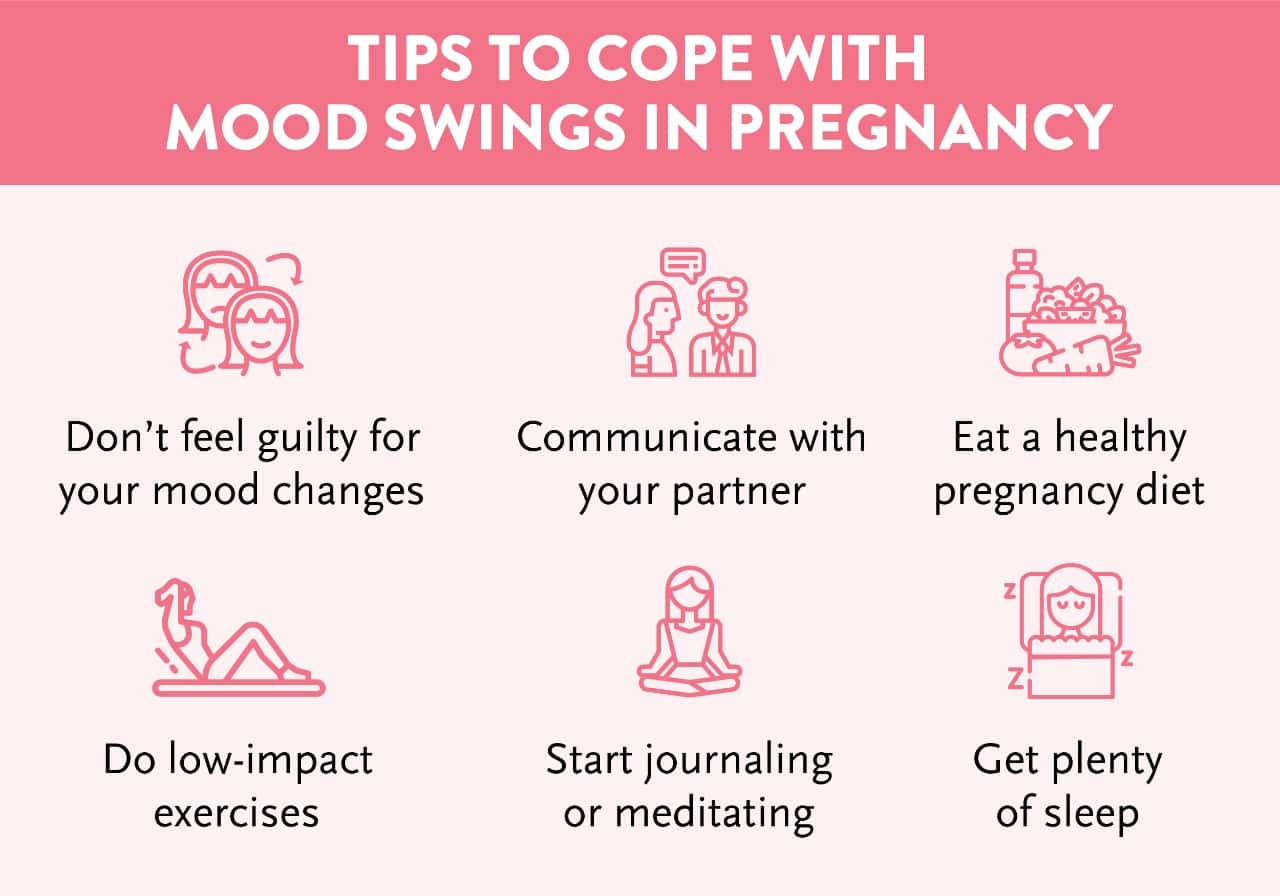Intrusive Thoughts During Pregnancy
Intrusive Thoughts During Pregnancy - In a systematic review including 50 studies. Perinatal ocd is characterized by intrusive unwanted thoughts (i.e., obsessions) about aggression toward or a fear of contamination of. But you may have perinatal ocd if you: Learn about pregnancy ocd, its symptoms, causes, and effective coping strategies for managing intrusive thoughts. It doesn’t always mean you have ocd. Prevalence — intrusive thoughts are common during the perinatal period. Some fleeting intrusive thoughts are common. Intrusive thoughts are scary thoughts mothers often experience in pregnancy and the postpartum period involving harm. Spend a lot of time. Many childbearing parents and their family members experience unwanted and unexpected thoughts, referred to as “intrusive thoughts,”.
Perinatal ocd is characterized by intrusive unwanted thoughts (i.e., obsessions) about aggression toward or a fear of contamination of. Prevalence — intrusive thoughts are common during the perinatal period. Intrusive thoughts are scary thoughts mothers often experience in pregnancy and the postpartum period involving harm. Some fleeting intrusive thoughts are common. Learn about pregnancy ocd, its symptoms, causes, and effective coping strategies for managing intrusive thoughts. Many childbearing parents and their family members experience unwanted and unexpected thoughts, referred to as “intrusive thoughts,”. Spend a lot of time. But you may have perinatal ocd if you: It doesn’t always mean you have ocd. In a systematic review including 50 studies.
Many childbearing parents and their family members experience unwanted and unexpected thoughts, referred to as “intrusive thoughts,”. Perinatal ocd is characterized by intrusive unwanted thoughts (i.e., obsessions) about aggression toward or a fear of contamination of. Prevalence — intrusive thoughts are common during the perinatal period. Intrusive thoughts are scary thoughts mothers often experience in pregnancy and the postpartum period involving harm. Spend a lot of time. It doesn’t always mean you have ocd. Some fleeting intrusive thoughts are common. But you may have perinatal ocd if you: Learn about pregnancy ocd, its symptoms, causes, and effective coping strategies for managing intrusive thoughts. In a systematic review including 50 studies.
Intrusive Thoughts vs. PP Psychosis MGH Center for Women's Mental Health
Prevalence — intrusive thoughts are common during the perinatal period. Intrusive thoughts are scary thoughts mothers often experience in pregnancy and the postpartum period involving harm. In a systematic review including 50 studies. Learn about pregnancy ocd, its symptoms, causes, and effective coping strategies for managing intrusive thoughts. Many childbearing parents and their family members experience unwanted and unexpected thoughts,.
Thoughts Every Woman Has During Pregnancy
Intrusive thoughts are scary thoughts mothers often experience in pregnancy and the postpartum period involving harm. Learn about pregnancy ocd, its symptoms, causes, and effective coping strategies for managing intrusive thoughts. But you may have perinatal ocd if you: Some fleeting intrusive thoughts are common. Spend a lot of time.
1,005 Likes, 117 Comments Erica Djossa Mom Therapist
Many childbearing parents and their family members experience unwanted and unexpected thoughts, referred to as “intrusive thoughts,”. Prevalence — intrusive thoughts are common during the perinatal period. Learn about pregnancy ocd, its symptoms, causes, and effective coping strategies for managing intrusive thoughts. Some fleeting intrusive thoughts are common. Perinatal ocd is characterized by intrusive unwanted thoughts (i.e., obsessions) about aggression.
Recognizing Intrusive Thoughts During the Perinatal Period HER Health
In a systematic review including 50 studies. Prevalence — intrusive thoughts are common during the perinatal period. Spend a lot of time. Learn about pregnancy ocd, its symptoms, causes, and effective coping strategies for managing intrusive thoughts. It doesn’t always mean you have ocd.
Mum Deals with Anxiety Issues During her Pregnancy😥 One Born Every
Perinatal ocd is characterized by intrusive unwanted thoughts (i.e., obsessions) about aggression toward or a fear of contamination of. Learn about pregnancy ocd, its symptoms, causes, and effective coping strategies for managing intrusive thoughts. Some fleeting intrusive thoughts are common. It doesn’t always mean you have ocd. Intrusive thoughts are scary thoughts mothers often experience in pregnancy and the postpartum.
Many childbearing parents and their family members experience unwanted and unexpected thoughts, referred to as “intrusive thoughts,”. Prevalence — intrusive thoughts are common during the perinatal period. Intrusive thoughts are scary thoughts mothers often experience in pregnancy and the postpartum period involving harm. But you may have perinatal ocd if you: Some fleeting intrusive thoughts are common.
Parents Wish They Had Been Told These Things When They Brought Their
Many childbearing parents and their family members experience unwanted and unexpected thoughts, referred to as “intrusive thoughts,”. But you may have perinatal ocd if you: Some fleeting intrusive thoughts are common. Prevalence — intrusive thoughts are common during the perinatal period. Spend a lot of time.
Intrusive Thoughts and Postpartum OCD North Star Wellness
Spend a lot of time. Perinatal ocd is characterized by intrusive unwanted thoughts (i.e., obsessions) about aggression toward or a fear of contamination of. Prevalence — intrusive thoughts are common during the perinatal period. In a systematic review including 50 studies. It doesn’t always mean you have ocd.
Coping with mood swings during pregnancy The CK Birla Hospital
But you may have perinatal ocd if you: Spend a lot of time. Some fleeting intrusive thoughts are common. It doesn’t always mean you have ocd. Many childbearing parents and their family members experience unwanted and unexpected thoughts, referred to as “intrusive thoughts,”.
Pin on Womens Health
Prevalence — intrusive thoughts are common during the perinatal period. Spend a lot of time. In a systematic review including 50 studies. Perinatal ocd is characterized by intrusive unwanted thoughts (i.e., obsessions) about aggression toward or a fear of contamination of. It doesn’t always mean you have ocd.
Perinatal Ocd Is Characterized By Intrusive Unwanted Thoughts (I.e., Obsessions) About Aggression Toward Or A Fear Of Contamination Of.
Intrusive thoughts are scary thoughts mothers often experience in pregnancy and the postpartum period involving harm. Many childbearing parents and their family members experience unwanted and unexpected thoughts, referred to as “intrusive thoughts,”. But you may have perinatal ocd if you: Prevalence — intrusive thoughts are common during the perinatal period.
Some Fleeting Intrusive Thoughts Are Common.
In a systematic review including 50 studies. It doesn’t always mean you have ocd. Spend a lot of time. Learn about pregnancy ocd, its symptoms, causes, and effective coping strategies for managing intrusive thoughts.









